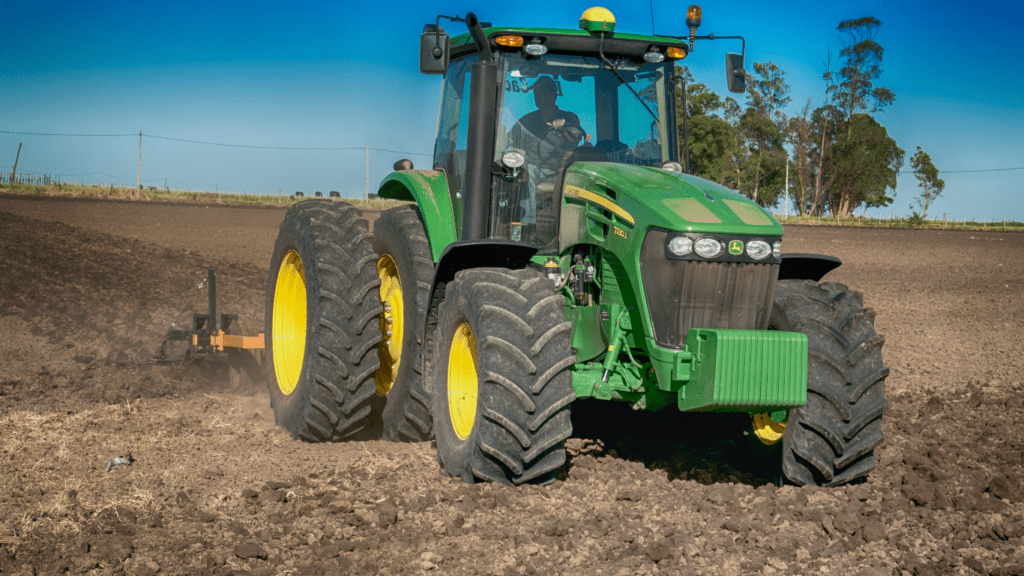As an urban farmer, I know the importance of sustainable practices in gardening. In today’s world, eco-friendly gardening tools have become essential for those looking to minimize their environmental impact while cultivating their urban oasis. From solar-powered watering systems to ergonomic hand tools made from recycled materials, the market is filled with innovative options for the eco-conscious gardener. All this equipment can be found in specialized online shops for agricultural tools and machinery, such as myagrovet.co.ke
In this article, I’ll introduce you to the top eco-friendly gardening tools that are not only good for the planet but also make your gardening tasks more efficient and enjoyable. Whether you’re tending to a small balcony garden or a community plot, incorporating these eco-friendly tools into your gardening routine can help you grow your plants while reducing your carbon footprint. Let’s explore how these sustainable tools can transform your urban gardening experience.
Understanding Eco-Friendly Gardening Tools
When it comes to urban farming, understanding eco-friendly gardening tools is a crucial aspect of sustainable practices. These tools play a significant role in minimizing the environmental impact of gardening activities while enhancing efficiency and enjoyment. Let’s delve into the benefits of using sustainable tools and explore their key features.
Benefits of Using Sustainable Tools
- Reduced Environmental Impact: Eco-friendly gardening tools are designed to have minimal impact on the environment. By using these tools, urban farmers can contribute to conservation efforts and promote biodiversity in their gardens.
- Healthier Plants and Soil: Sustainable tools are often made from non-toxic materials, ensuring that they do not leach harmful chemicals into the soil. This promotes healthier plant growth and creates a more sustainable gardening environment.
- Long-Term Cost Savings: While eco-friendly tools may have a slightly higher upfront cost, they often last longer than traditional tools. This durability leads to long-term cost savings for urban farmers, making them a sustainable investment.
- Recycled Materials: Many eco-friendly gardening tools are crafted from recycled materials such as plastic, wood, or metal. By repurposing existing resources, these tools help reduce waste and minimize the need for new raw materials.
- Energy Efficiency: Some sustainable tools, like solar-powered watering systems, harness renewable energy sources to operate. This not only reduces the carbon footprint of gardening activities but also lowers utility costs for urban farmers.
- Ergonomic Design: Eco-friendly tools often prioritize user comfort and safety by incorporating ergonomic designs. This feature reduces strain on the hands and body, allowing gardeners to work efficiently without compromising their well-being.
Top Eco-Friendly Tools for Soil Preparation
When it comes to soil preparation in urban farming, eco-friendly gardening tools play a crucial role in promoting sustainability. These tools not only help in maintaining healthy soil but also contribute to reducing the environmental impact of gardening practices. Let’s explore two essential eco-friendly tools for soil preparation:
Compost Aerators
Compost aerators are essential tools for turning and aerating compost piles, promoting decomposition and nutrient circulation. These tools come in various designs, such as hand-held crank aerators or corkscrew-style aerators, making it easy to mix and aerate compost without heavy machinery or electricity. By incorporating compost aerators into your gardening routine, you can accelerate the composting process, reduce waste, and enrich your soil with nutrient-rich compost.
Manual Tillers
Manual tillers, also known as hand tillers or hand cultivators, are eco-friendly alternatives to gasoline-powered tillers for breaking up soil and preparing garden beds. These handheld tools feature sharp tines or blades that penetrate the soil, allowing you to loosen compacted earth, remove weeds, and mix in amendments effectively. Manual tillers are lightweight, easy to maneuver in small spaces, and do not emit harmful fumes, making them ideal for eco-conscious urban farmers looking to maintain healthy soil without relying on gas-powered equipment.
Efficient Watering Solutions
Optimizing water usage in urban farming is crucial for sustainable practices. Utilizing efficient watering solutions not only conserves water but also promotes healthy plant growth. Let’s explore two essential tools that can help urban farmers achieve this.
Drip Irrigation Systems
Drip irrigation systems are a game-changer for urban farmers looking to efficiently water their plants. These systems deliver water directly to the roots, minimizing water wastage through evaporation or runoff. By providing a slow and steady drip, plants can absorb moisture more effectively, leading to healthier growth and reduced water consumption. Installing drip irrigation systems in your garden can significantly lower water usage while ensuring that your plants receive the hydration they need.
Water-Saving Nozzles
Water-saving nozzles are another valuable tool for urban farmers conscious of water conservation. These nozzles regulate water flow, allowing for precise watering without wasting excess water. By controlling the water output and streamlining irrigation, water-saving nozzles help prevent water runoff and ensure that every drop is utilized efficiently. Incorporating these nozzles into your gardening routine can contribute to sustainable water management practices and promote a greener, more eco-friendly urban farm.
Plant Care and Maintenance
When it comes to plant care and maintenance in urban farming, utilizing sustainable practices is key. From biodegradable planters to organic mulch options, there are various eco-friendly tools and methods to ensure the health and vitality of your plants while minimizing environmental impact.
Biodegradable Planters
Biodegradable planters are an excellent eco-friendly alternative to traditional plastic pots. These planters are made from organic materials such as coconut coir, peat, or wood pulp, which naturally decompose over time. By using biodegradable planters, you not only reduce plastic waste but also provide your plants with a healthier and more sustainable growing environment. These planters can be directly planted into the soil, eliminating the need to transplant, and promoting better root growth and nutrient uptake for your plants.
Organic Mulch Options
Maintaining proper moisture levels and soil health is crucial for plant growth, especially in urban farming where space and resources may be limited. Organic mulch options such as straw, grass clippings, or compost not only help retain moisture in the soil but also provide essential nutrients as they break down. Mulching around plants can suppress weed growth, regulate soil temperature, and improve overall soil structure. By choosing organic mulch options, you actively enrich the soil, reduce the need for chemical fertilizers, and support a more sustainable gardening ecosystem on your urban farm.
Essential Accessories for Urban Farmers
As an urban farmer, I understand the importance of utilizing sustainable practices and eco-friendly tools in gardening. Here are some essential accessories that can enhance both the efficiency and environmental friendliness of your gardening experience.
Solar-Powered Garden Lights
When it comes to illuminating your garden while reducing energy consumption, solar-powered garden lights are a game-changer. These lights charge during the day using sunlight and automatically turn on at night, providing a soft glow to your plants without relying on electricity. By harnessing the power of the sun, you can create a beautifully lit garden while minimizing your carbon footprint.
Recycled Material Garden Gloves
Opting for garden gloves made from recycled materials is a great way to reduce waste and protect your hands while tending to your plants. These gloves are often durable, comfortable, and offer the same level of protection as conventional gloves. By choosing recycled material garden gloves, you not only contribute to waste reduction but also promote a more sustainable approach to gardening.

 Carolyna Riteralo is a passionate contributor to the project, focusing on sustainable urban development. With her background in architecture and urban planning, she provides valuable perspectives on integrating green spaces and eco-friendly designs into urban environments. Carolyna works collaboratively with the team to implement strategies that enhance community well-being and foster a connection with nature. Her dedication to creating greener cities makes her a vital member of the project, as she helps shape initiatives that promote resilience and improve the quality of urban life.
Carolyna Riteralo is a passionate contributor to the project, focusing on sustainable urban development. With her background in architecture and urban planning, she provides valuable perspectives on integrating green spaces and eco-friendly designs into urban environments. Carolyna works collaboratively with the team to implement strategies that enhance community well-being and foster a connection with nature. Her dedication to creating greener cities makes her a vital member of the project, as she helps shape initiatives that promote resilience and improve the quality of urban life.